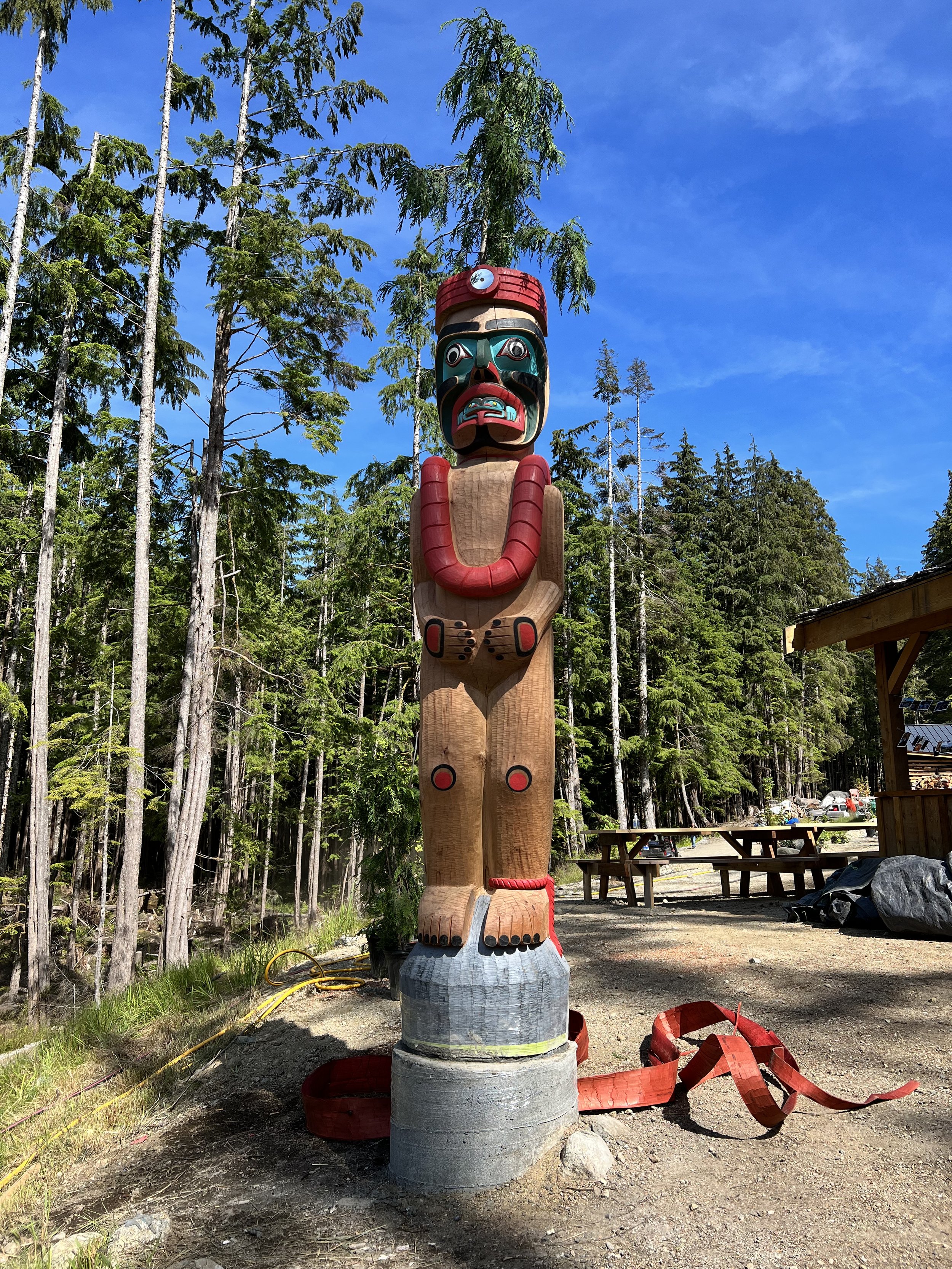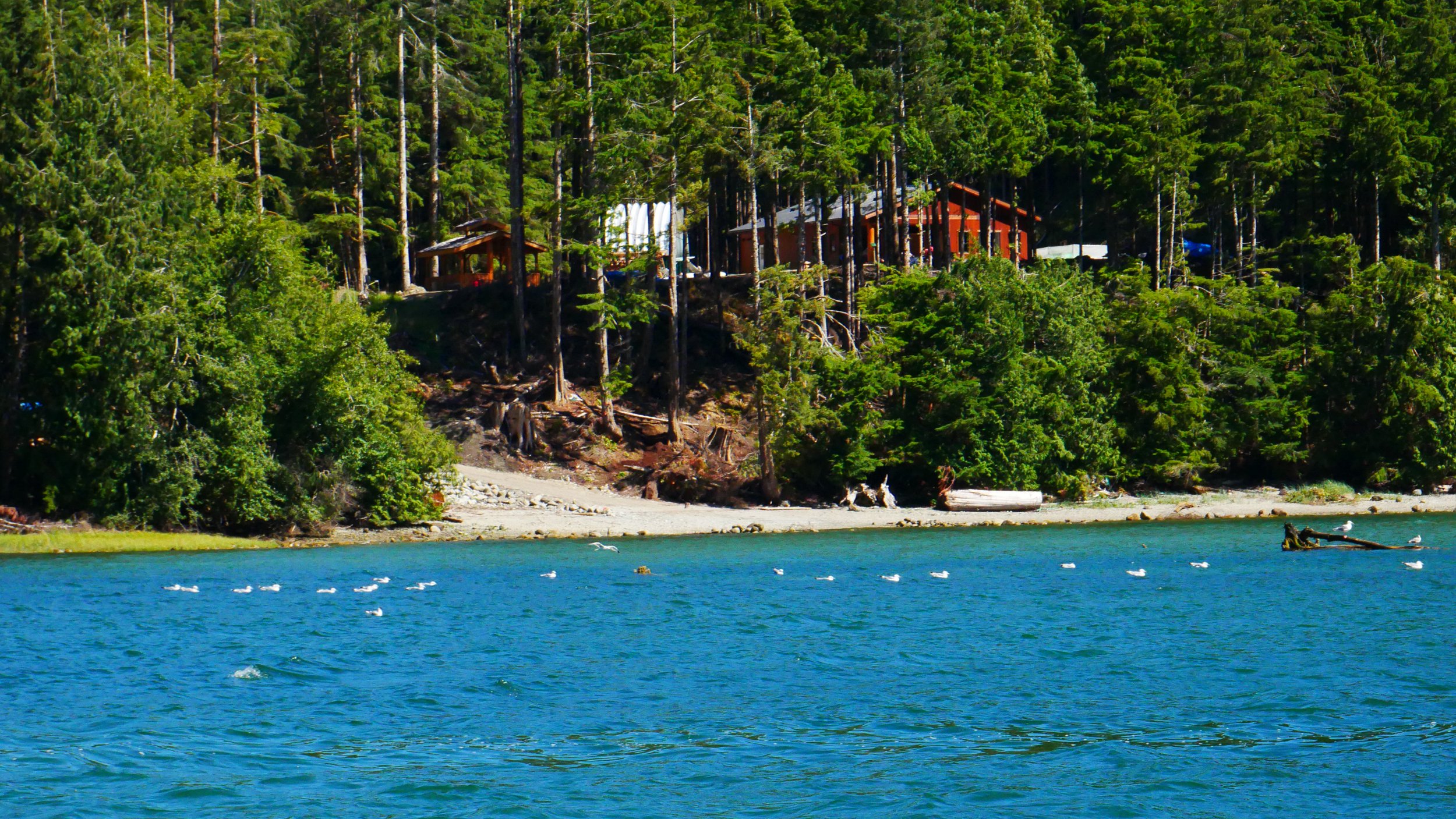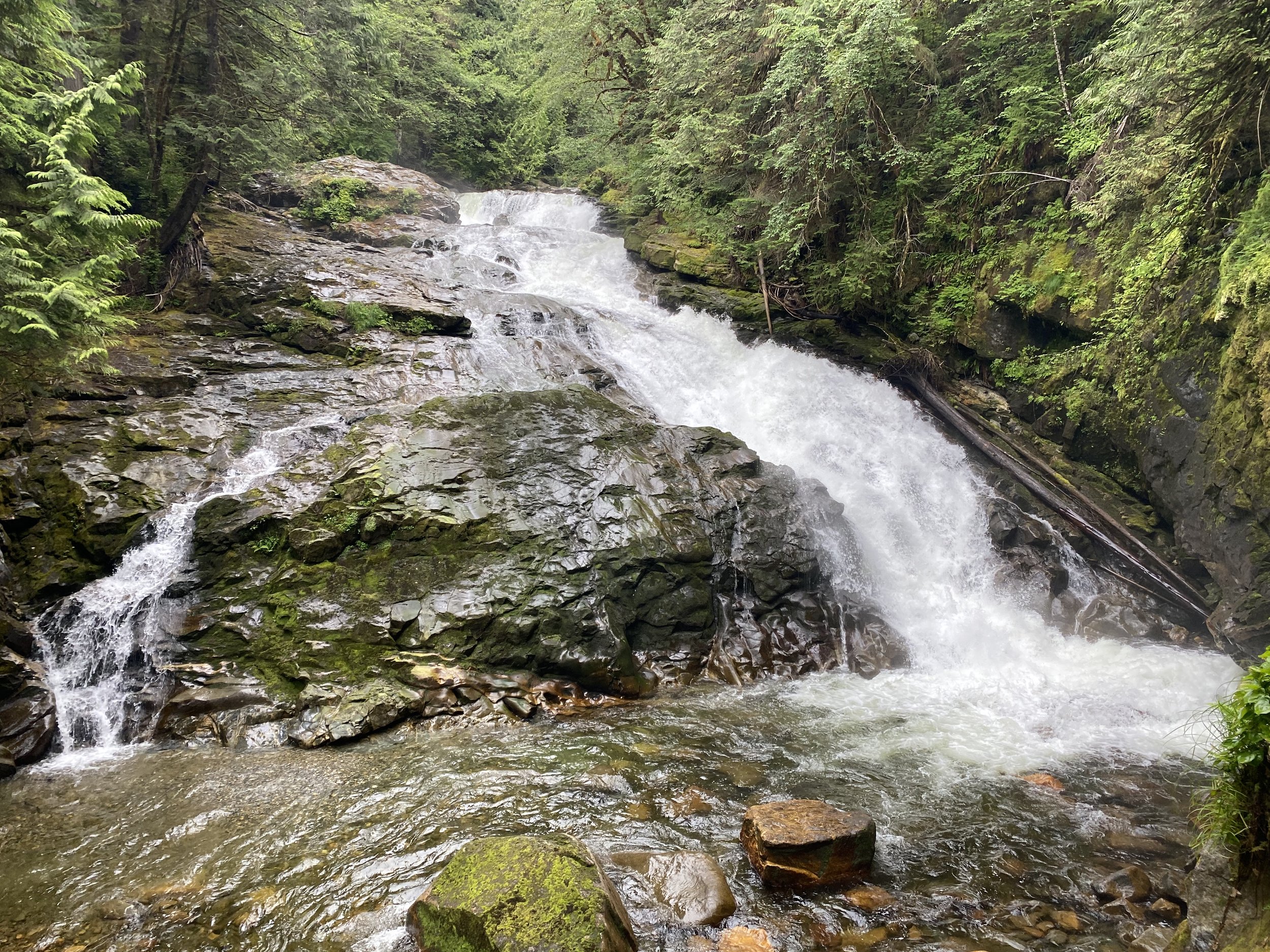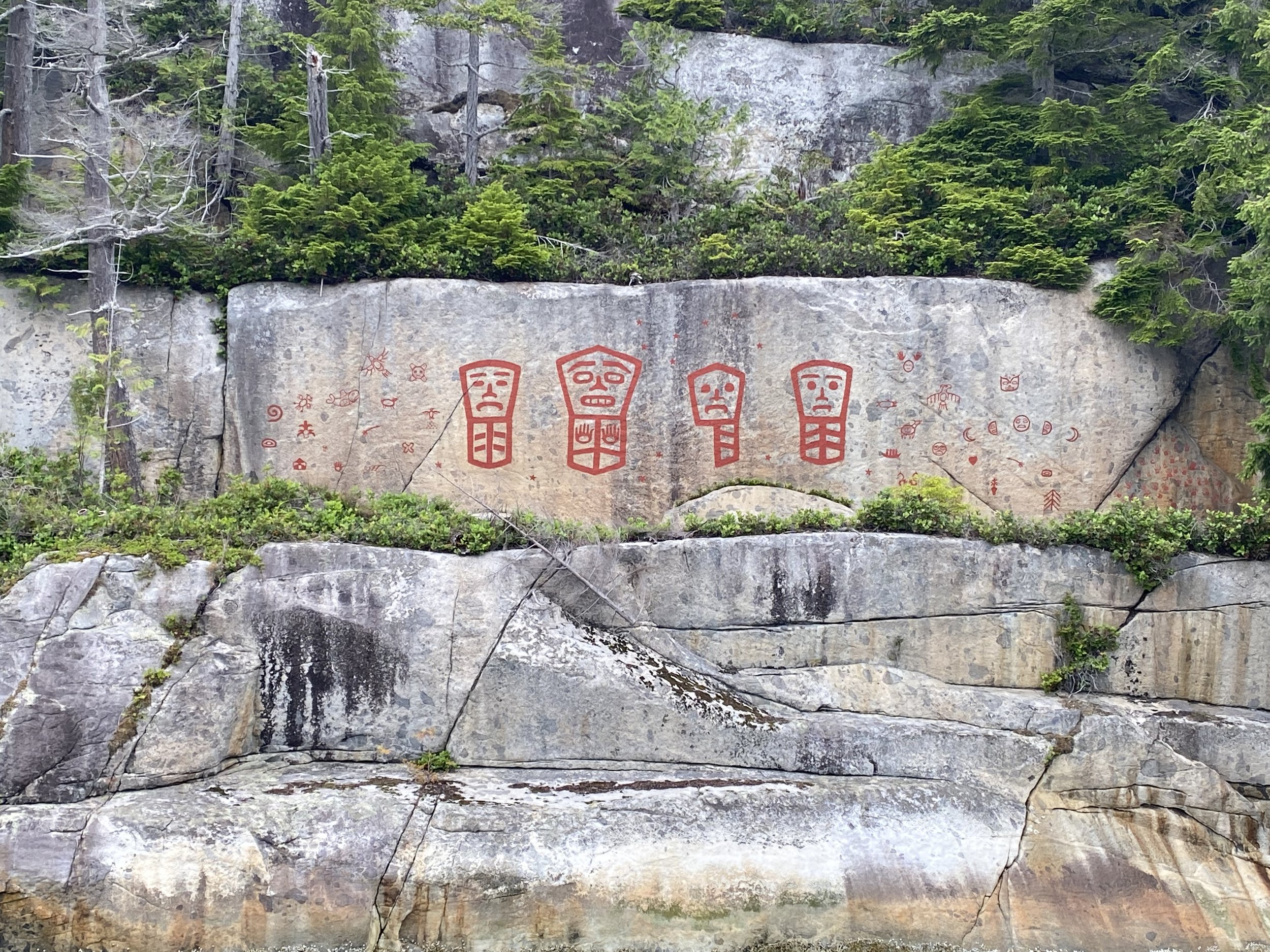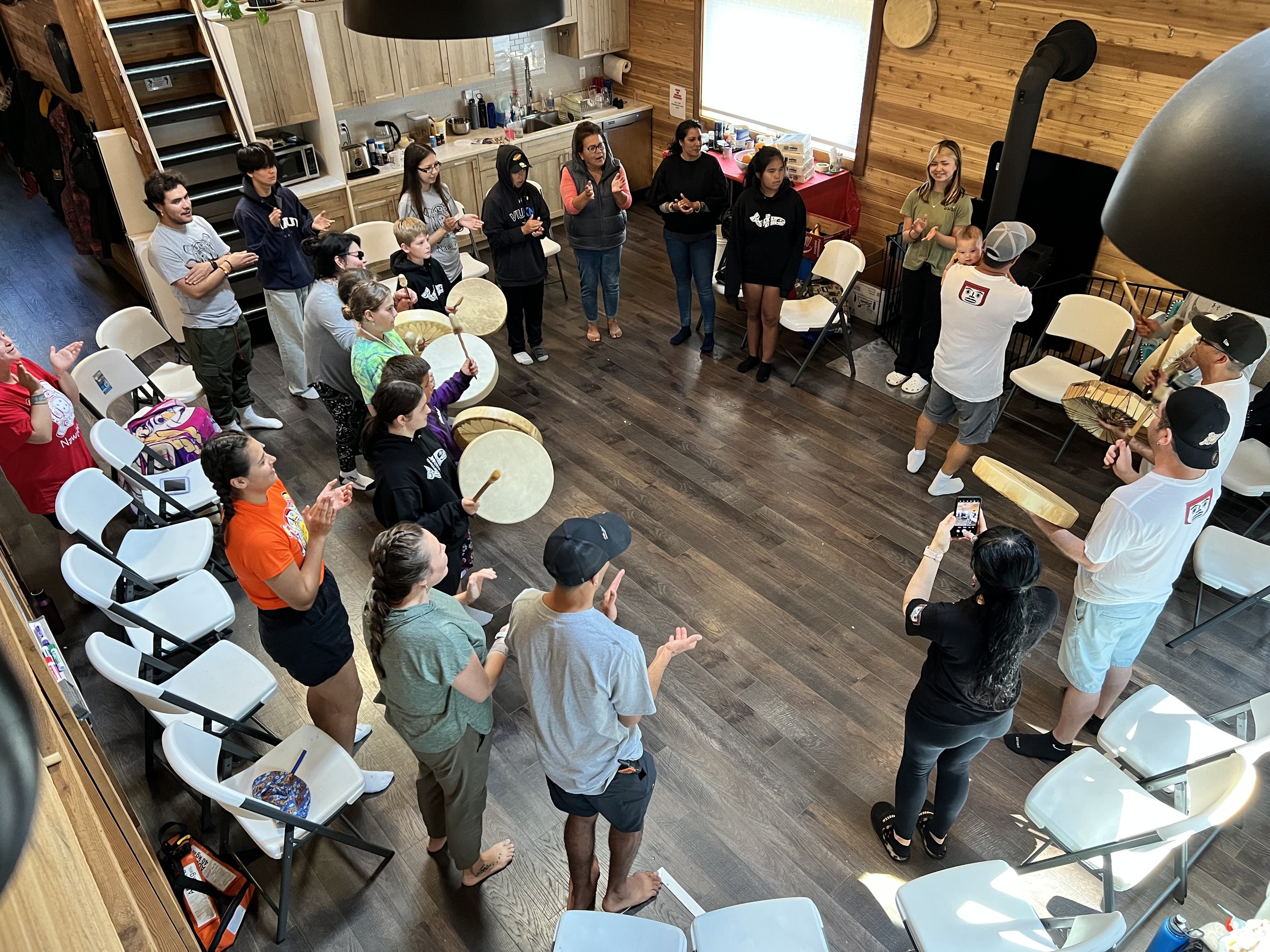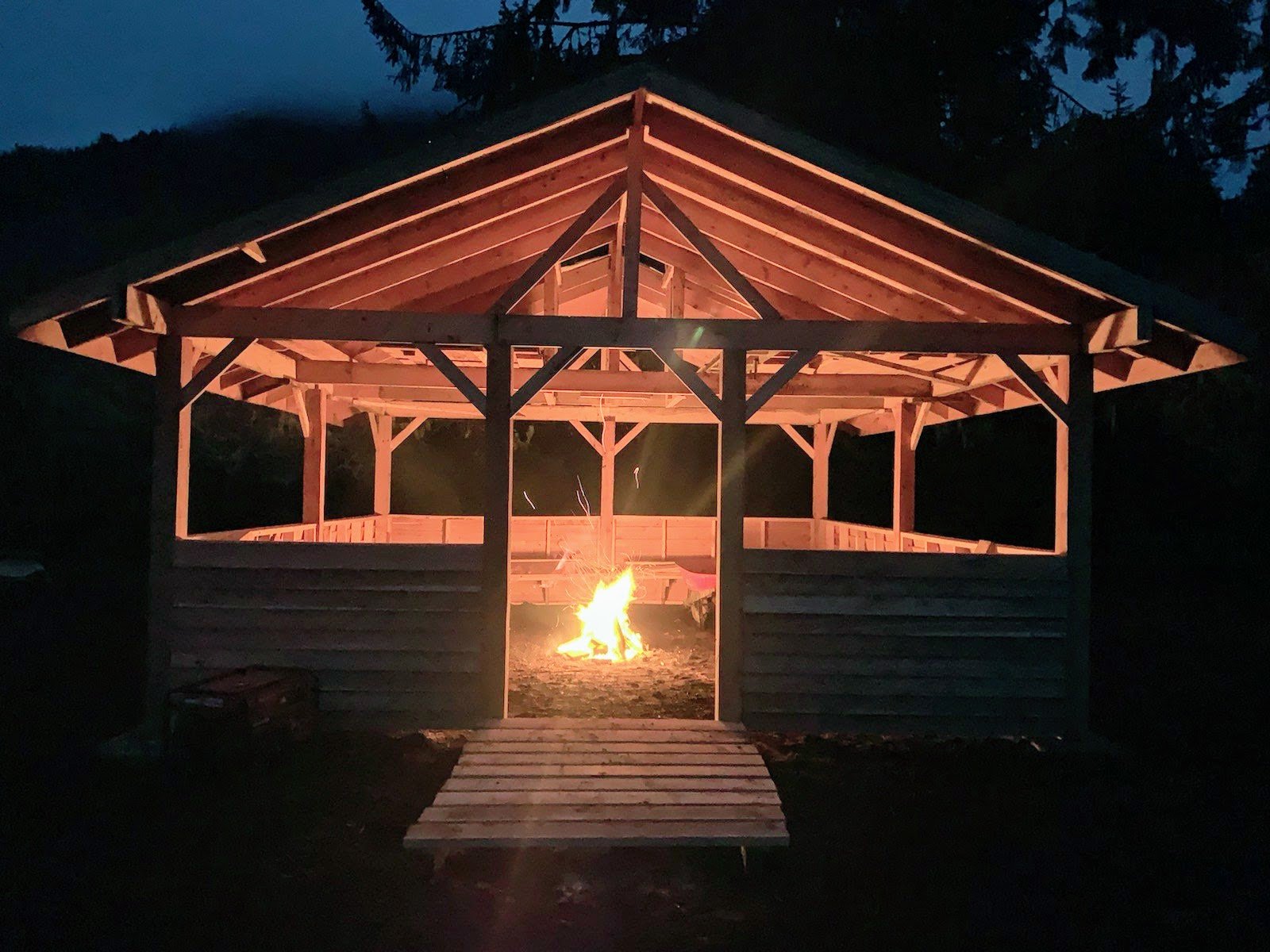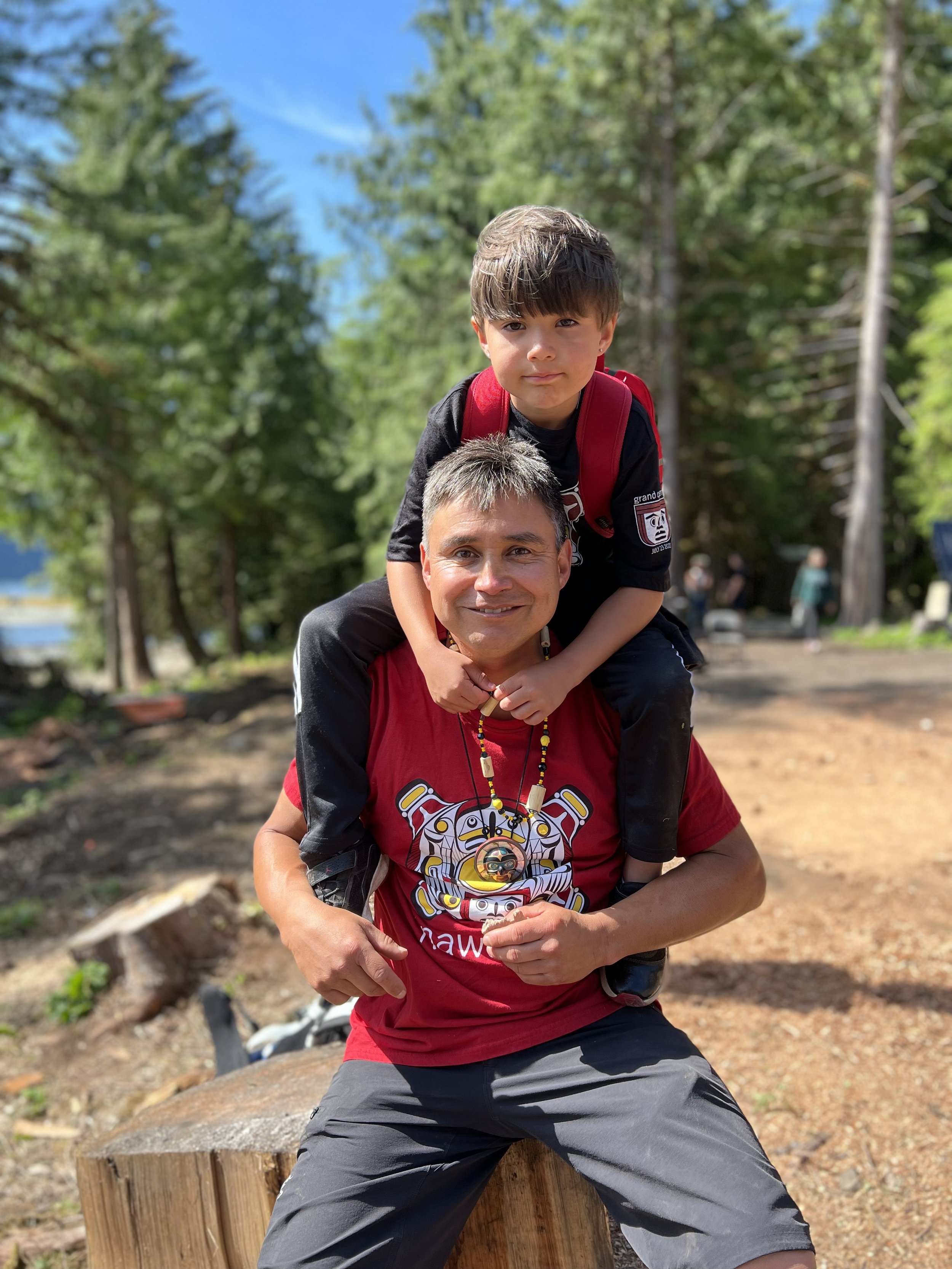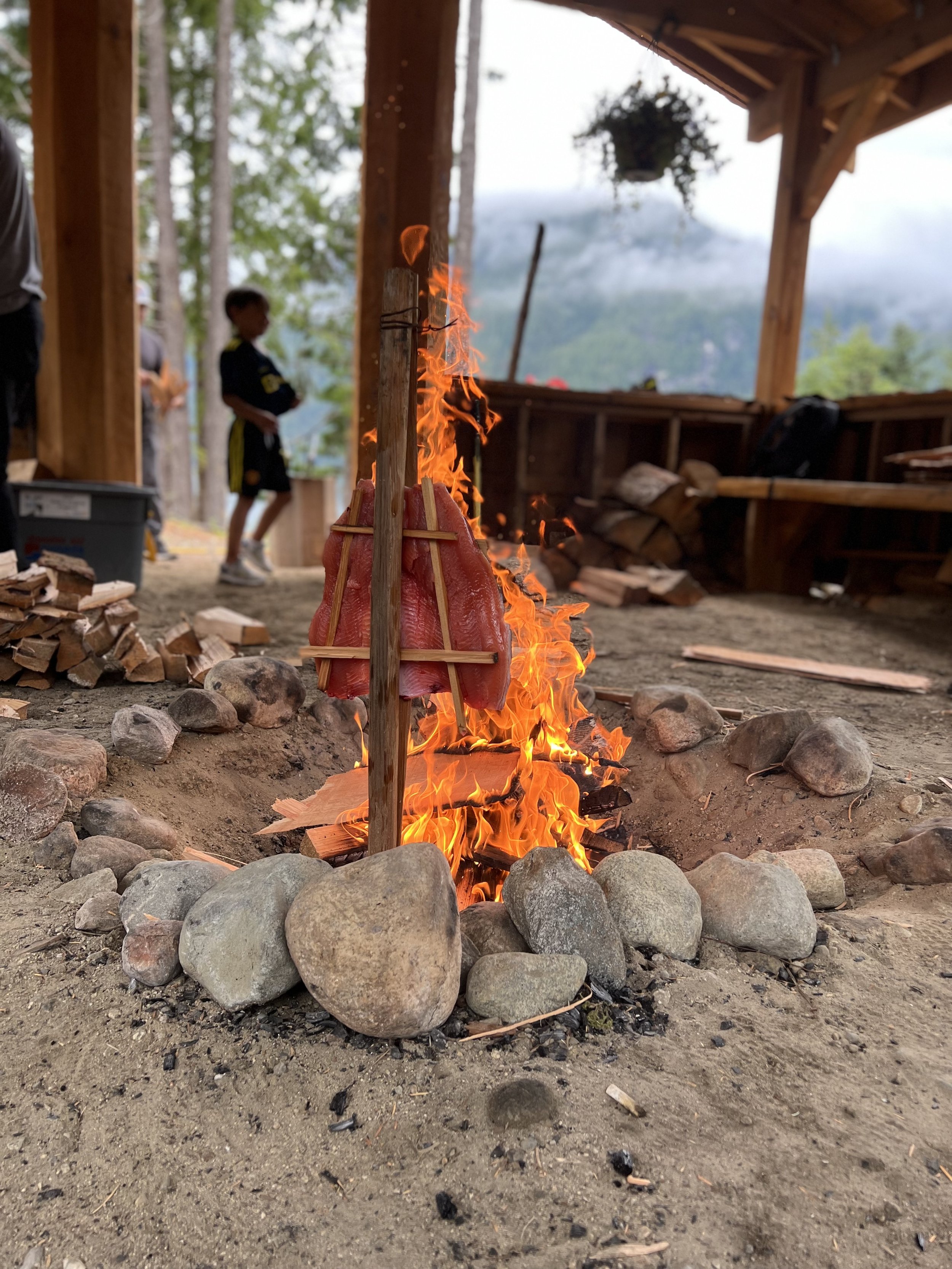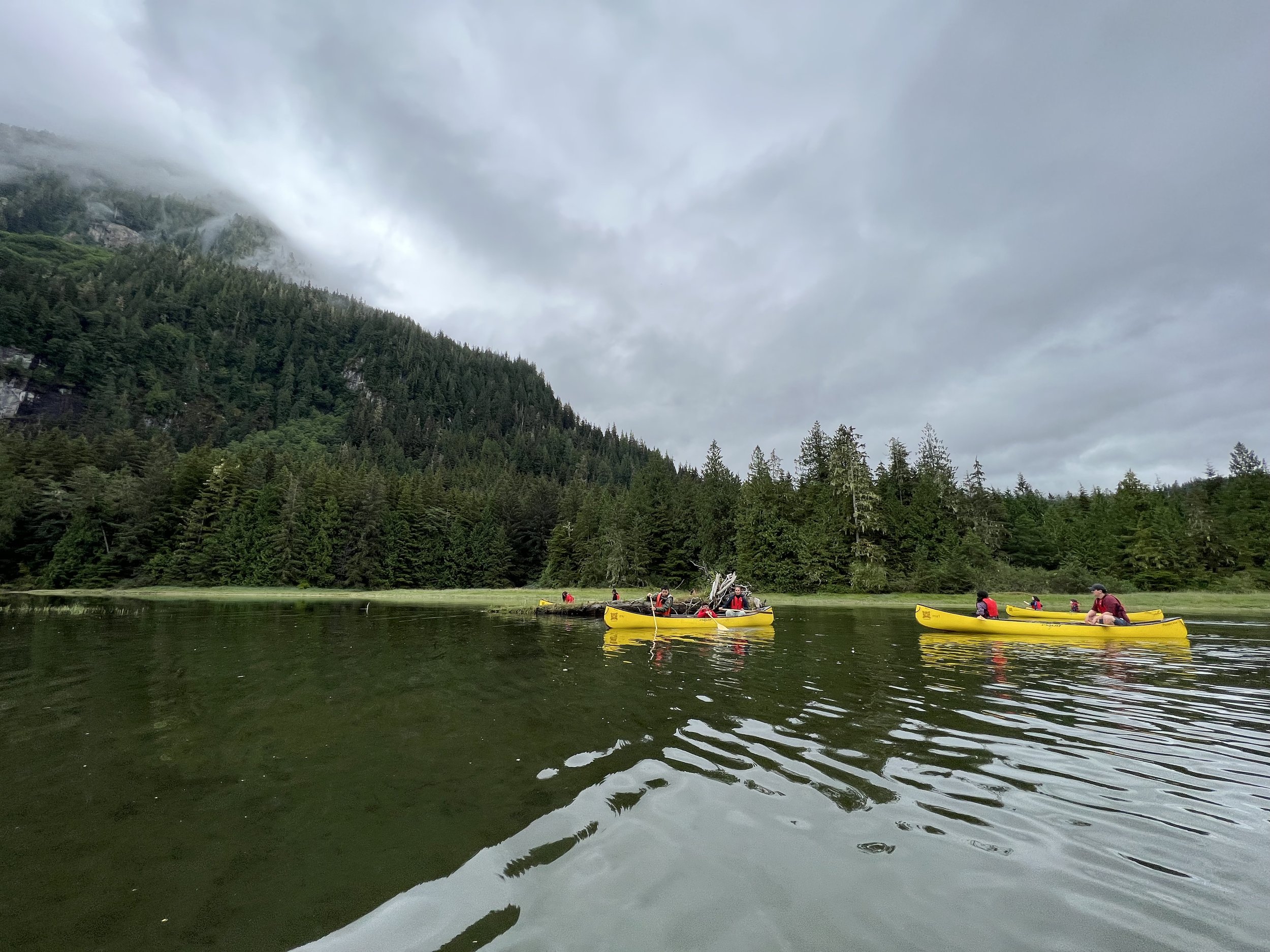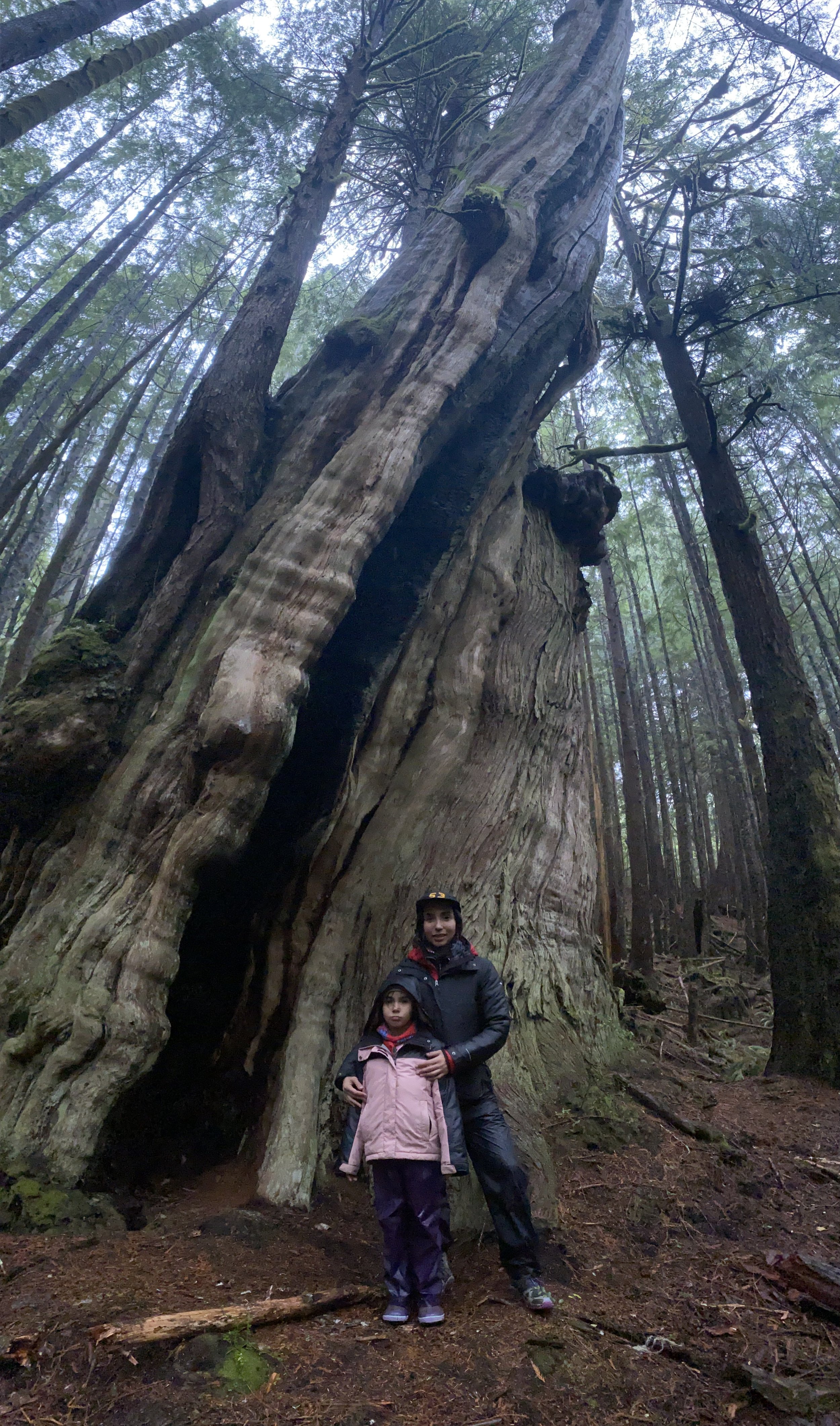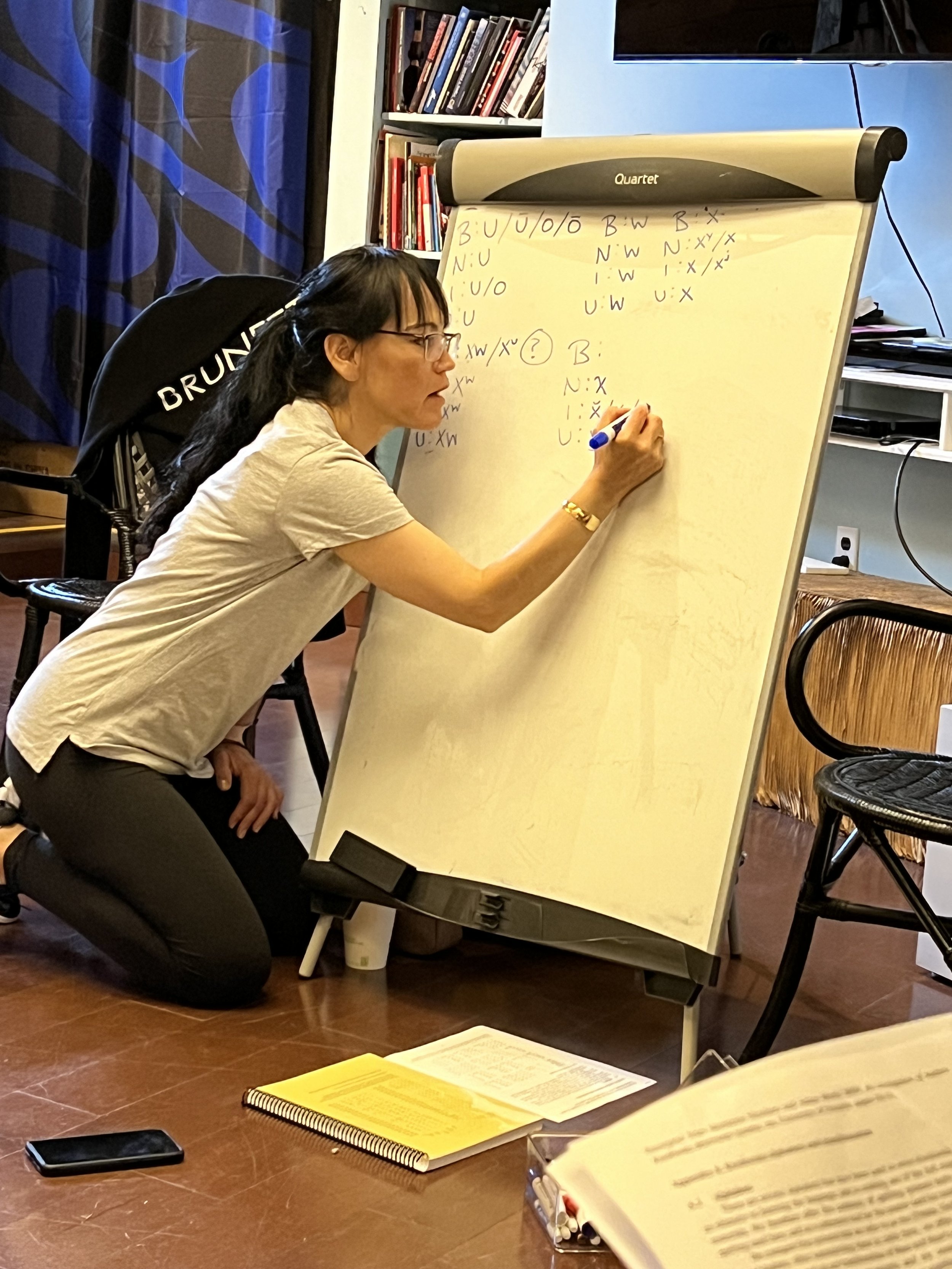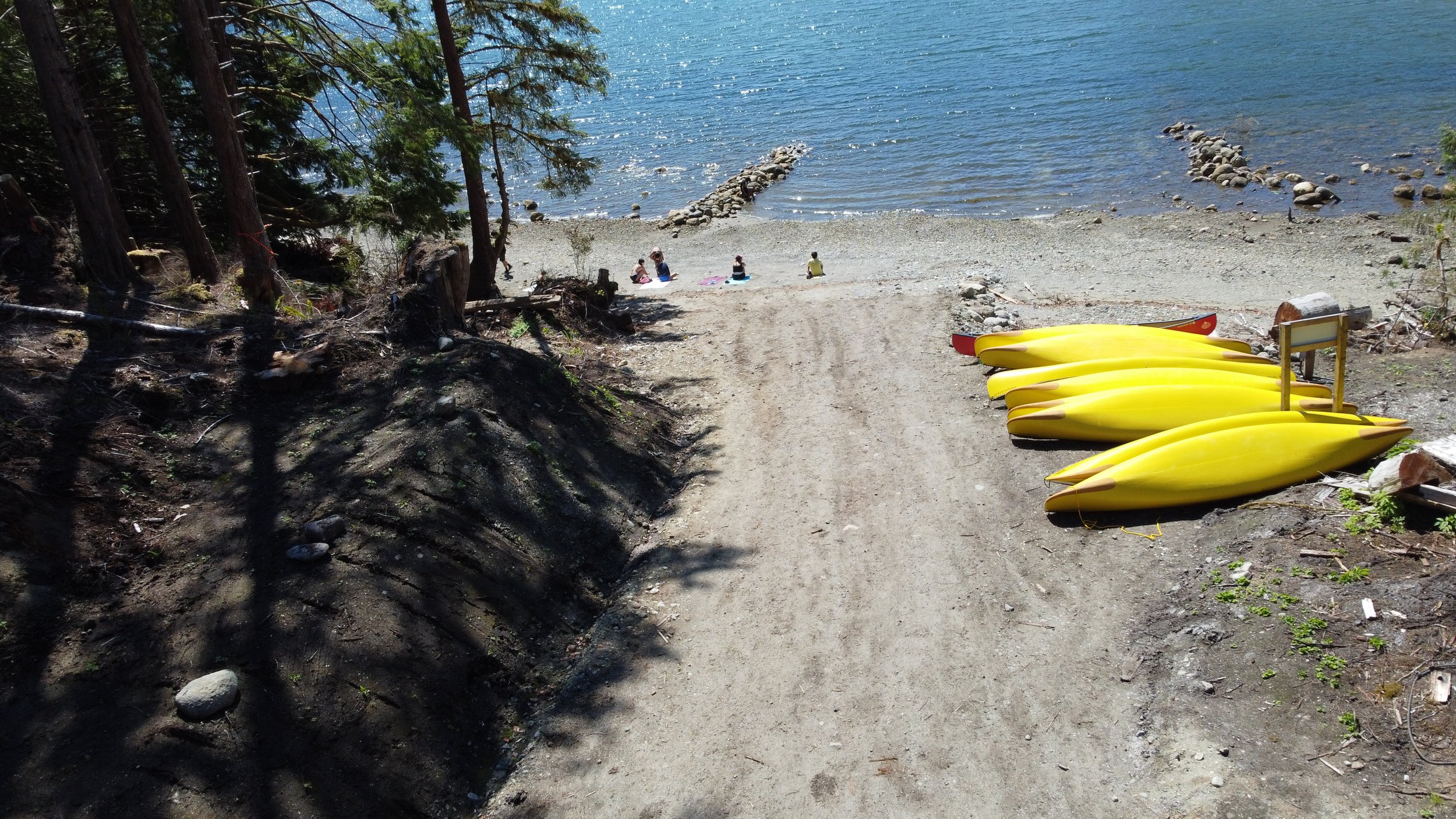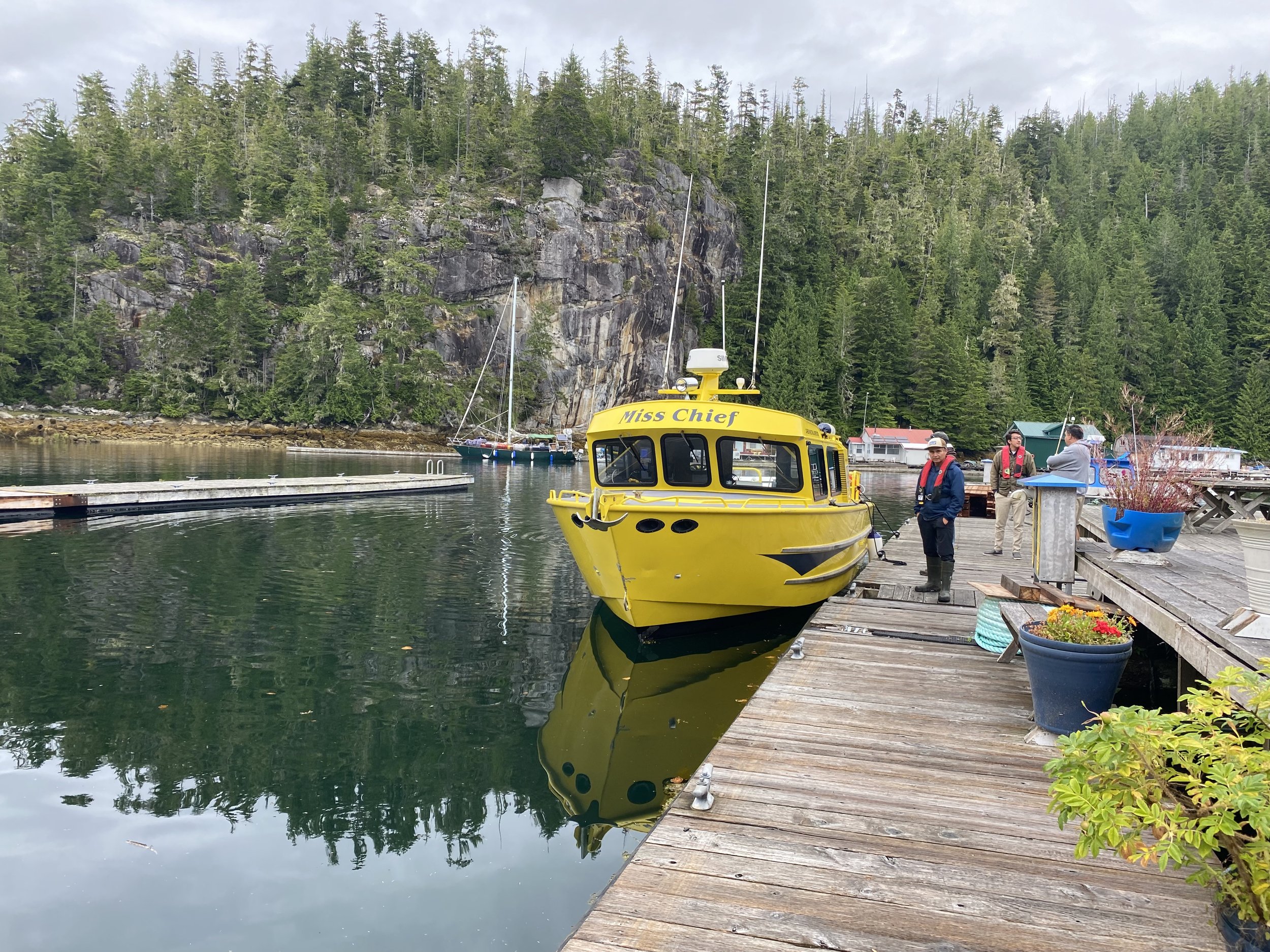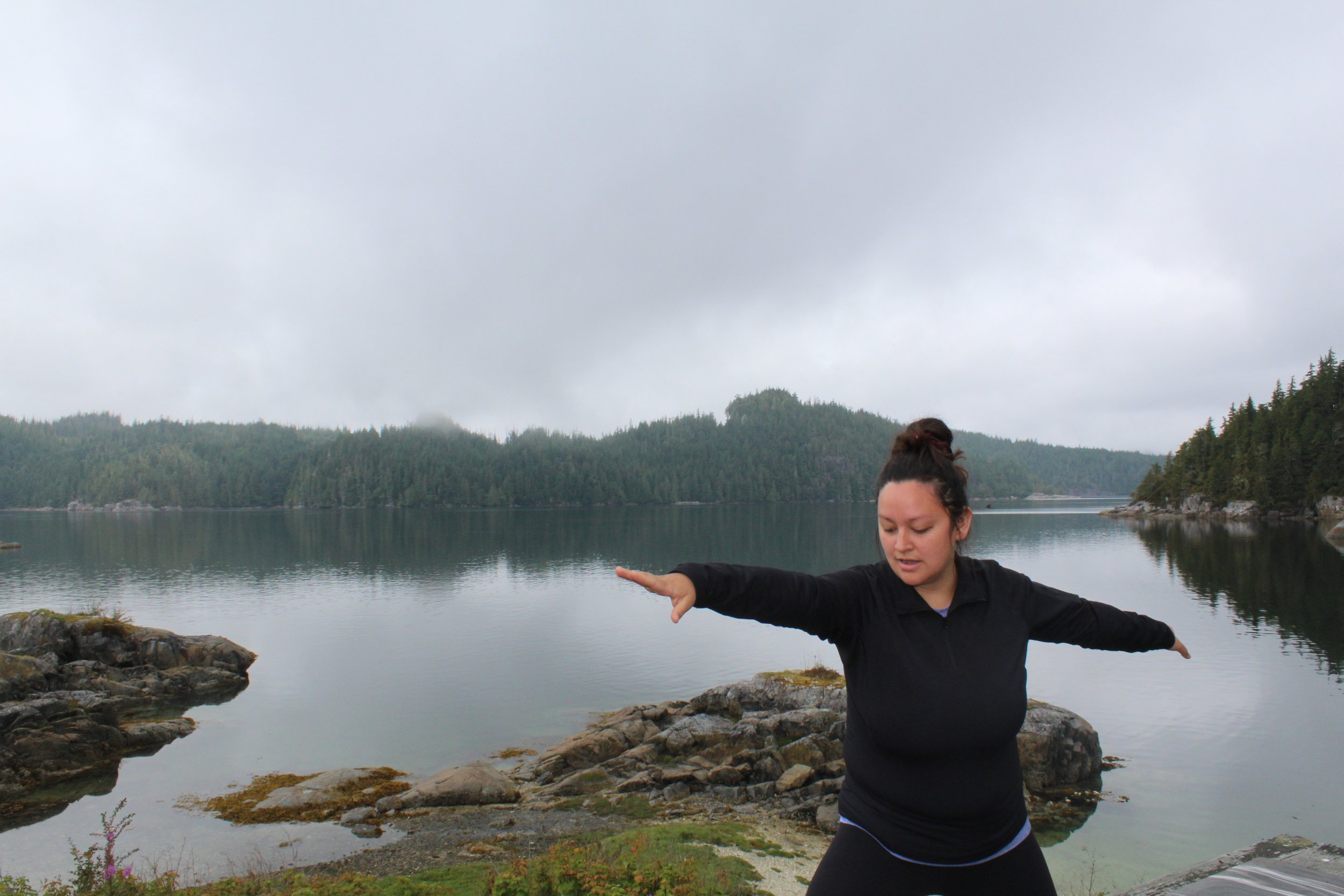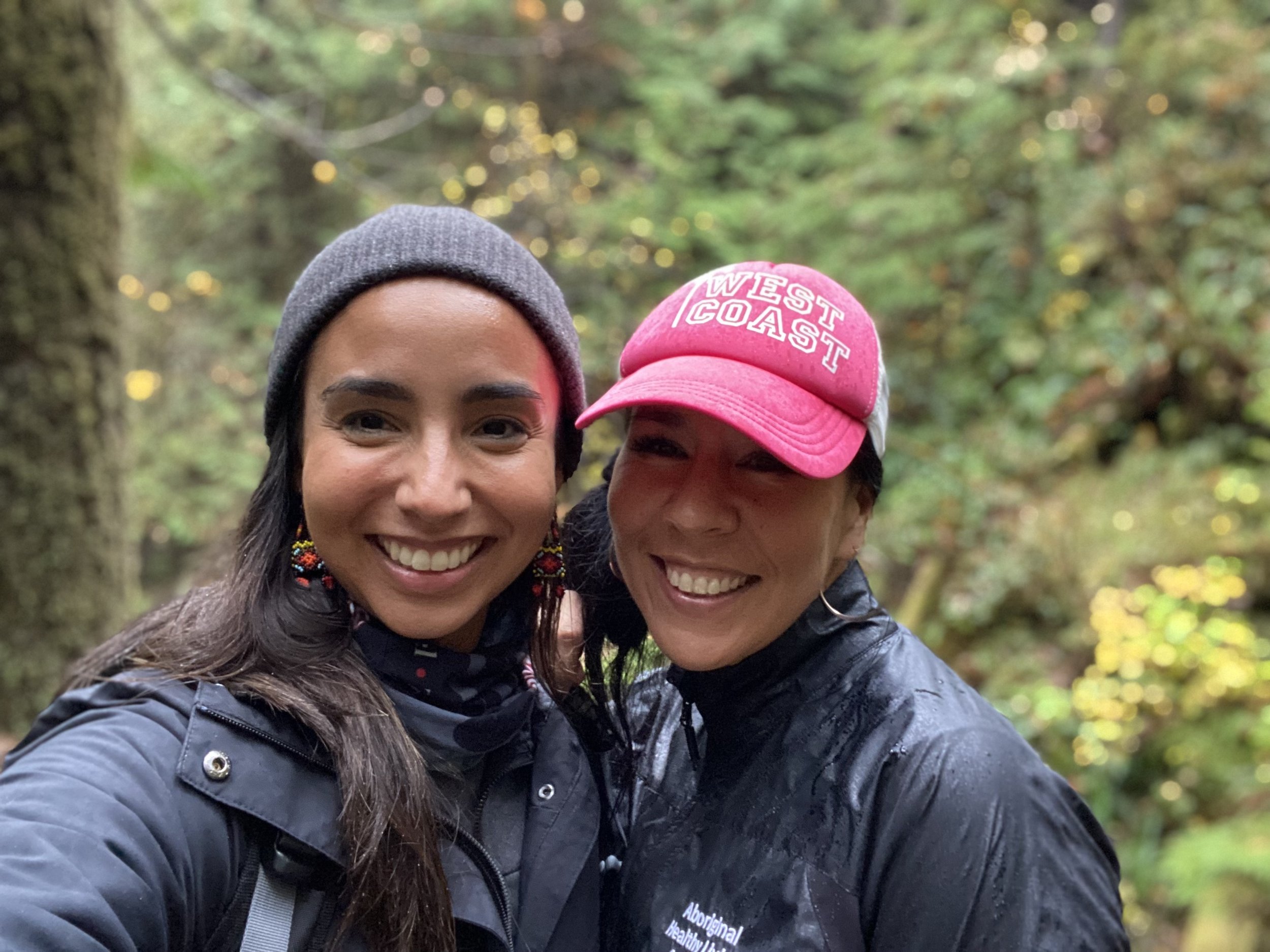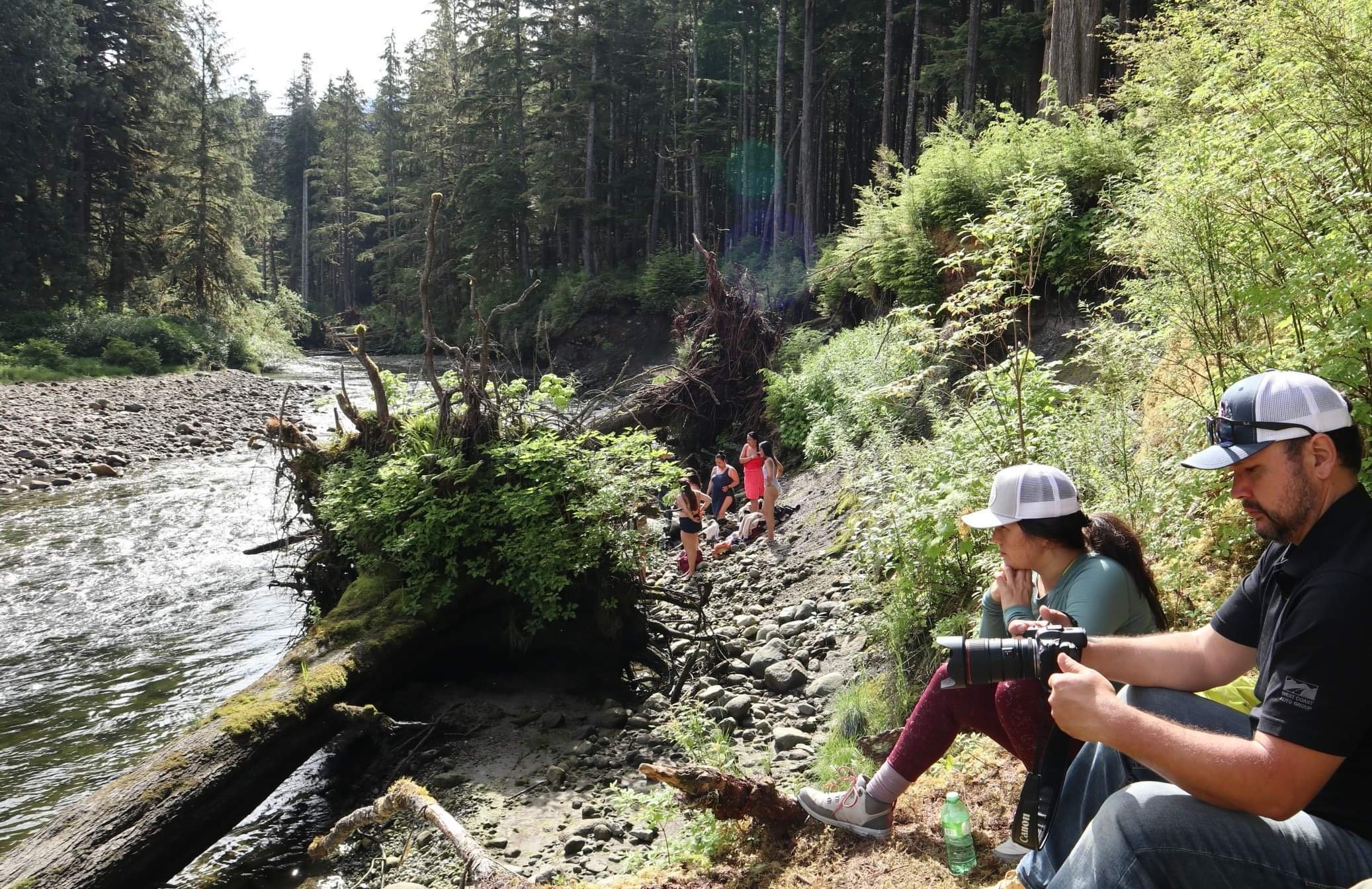Community Projects
Ga̱’wala x̱a̱n Sa̱nala (Help me to be whole) Healing Camp
Ga̱'wala x̱a̱n sa̱nala (Help me to be whole) is a pilot project, co-led by Jessica Barudin and Stephanie Bernard, in partnership with Nawalakw and North Island Building Blocks to support the wellness and healing of our North Island First Nations community and wellness service providers. Our gathering will be hosted on the lands of the Ḵwiḵws̱sut’inux̱w Ha̱xwa’mis at Hi'ma̱nis ḵaḵ̓ut̓ła̱'atsi “A place for forever learning” in Hada (Bond Sound) from May 6-10, 2024.
Our gathering offers trauma-informed, culturally rooted, and place-based learning alongside somatic (body-based) healing practices and Kwak'wala language learning to enhance the wellness and healing of all participants. Nawalakw prioritizes the goal of language revitalization, increasing language learning opportunities toward fluency so Hi'ma̱nis ḵ̓aḵ̓ut̓ła̱'at̓si (a place of learning forever) will be filled with people speaking Kwak̕wala for years to come. Our shared goal is to provide land-based activities, interactions between Elders and learners, opportunities to listen to and use language in conversation and ceremony, and a place where our people can explore the language, culture, and healing in a joyful and serene environment.
Audience / Participants:
We recognize the immense challenges our communities have been facing with the ongoing toxic drug and mental health crises in our Kwakwaka’wakw communities. We are inviting North Island First Nations community and wellness service providers to take time to focus on wellness and gather strength and support to continue to create solutions and healing opportunities with the individuals, families, and communities they serve. Targeted invitations have been led by Stephanie Bernard to local community and wellness service providers and teams to reach a variety of sectors including health, healing, social services, education, and community development.
Goals of Pilot Project:
Welcome up to 20 community and wellness service providers to participate in the 1-week cultural immersion healing camp.
Foster connections between service providers to enhance professional and community practices of care and trauma healing.
Provide strategies for kwak’wala language integration in communication and services and nurture language and cultural reclamation strategies and learning amongst respective teams.
Engage with community service providers to co-create a language and healing framework strategy that informs organizational wellness and community practices.
Project Leads:
Led by Kwakwa̱ka̱’wakw women wellness practitioners, Jessica Barudin and Stephanie Bernard, have worked and learned together since 2020 in various capacities through community-based wellness initiatives - including the First Nations Women’s Yoga Initiative. Additionally, they work together on the development of the Indigenous Yoga Collective, a grassroots movement to promote cultural revitalization and embodiment through ceremony, yoga, and breathwork. Jessica and Stephanie have also collaborated on enhancing service delivery at the North Island Building Blocks, collaborations with the Maternal Child and Family Health team, the First Nations Health Authority, and the First Nations Primary Care Initiative for Kwakwa̱ka̱’wakw Nations.
Lastusa̱las Jessica Barudin, PhD, Community Wellness Specialist, Consultant
‘Maxwaks Stephanie Bernard - Community Wellness Provider, Director of Building Blocks
Project Collaborators:
Kwa̱nkwa̱nxwa̱ligedzi Wakas Chief Dr. Robert Joseph - Fluent language speaker, Hereditary Chief of the Gwawaenuk First Nation, Orator
G̱a̱'ax̱stalas Elder Maggie Sedgemore - Clinical Counsellor, Knowledge Keeper
K’odi Nelson - Nawalakw Executive Director, Knowledge Keeper
Dza̱mdzasila̱'og̱wa Gloria Hunt - Nawalakw Language Program Supervisor
Trevor Isaac - Culture and Language support
Cody Preston - Cinematographer, Cody Preston Films
Partnerships:
FAQs + Participant information
Are the activities safe for all ages and abilities?
There will be several options for programming throughout each day that range from indoor wellness activities, cultural dancing and singing, mixed level movement and games, and outdoor walks/hikes in the territory. For outdoor activities, we encourage participation, however, this is dependent on the comfort level of the participant. Nawalakw staff are trained in First Aid: Basic/standard, Transportation Endorsement, AED, Basic CPR, OFAL3, ASIST Suicide Prevention, Wilderness First Aid, and Risk Management, Trauma-Informed Practices, Mental Health Awareness, Ladders 2 Kindness, Bear Safety & Awareness Guiding, Western Maritime SVOP & Marine Emergency Duties (A3), Radio Operator Course Marine, Leadership Skills, Food Safe, Fall Protection, & Lake Canoe Skills to support camp operations and participants’ time at the facility.
Due to our remote location, our staff carry inReach devices at all times, bear spray, and an on-the-go First Aid kit for all land-based activities. Participants, including staff, move through the spaces at Hada in groups of three. There is a First Aid room that can support any/all emergencies, including emergency evacuation at base. All participants are required to wear life jackets for water activities (canoeing, boating, etc.).
Will there be Wifi or cell service access during the camp?
There will be limited access to wifi at the camp. We are following Nawalakw’s policies of maintaining mostly a “tech-free zone” for participants, we ask that you leave all electronic devices stored safely (cell phones, iPads, etc.). This allows participants to connect to one’s self, each other, and a̱wi’nakola (lands, waters, and skies).
What are the accommodations/sleeping arrangements like?
Participants will be staying at the 2400 sq. ft. solar-powered camp facility with capacity for 24 individuals and support staff. Sleeping quarters are in a loft-style area, equipped with skylights to see the stars at night and an emergency exit. There are a few rooms that are suitable/designed for Elders and people with limited mobility. There is also an option for shared accommodations in a mini cabin adjacent to the main lodge. We will do our best to accommodate everyone so that you can have a comfortable sleep.
Do I have to bring any food or snacks?
We have a camp cook, Dale Peterson, who will nourish participants with three meals daily and additional snacks. Participants will help with the kitchen and cleaning duties. A schedule will be set up during camp orientation. Food Restrictions: Please let us know about any food restrictions. We ask that participants do not pack snacks as these attract wildlife, all food will be provided. If special dietary requirements are needed, please let us know and we will make a plan with our camp cook or have snacks you bring available during food breaks.
I am sensitive to smells, is there a fragrance policy for participants?
We will remind participants that Nawalakw is a scent-free zone and discourage participants from wearing any heavily perfumed products or lotions to respect everyone’s sensitivities.
Are children able to attend?
We welcome little ones attending with their caregiver to attend, however, the camp programming is designed for adult participants. We will do our best to accommodate the needs of parents and young children, as we are aware childminding can be challenging for participants to navigate on multi-day trips.
What should I pack?
See packing list below - additional items may include a sleep/eye mask, ear plugs, journal, clothes to comfortably move in for exercise/outdoor hikes/ yoga. Size & Weight Limits: Participants can bring one duffel bag and one small daypack and are required to be under 40 lbs due to weight limits on our boats to the camp. Pack for warm, cool, and/or wet weather.





